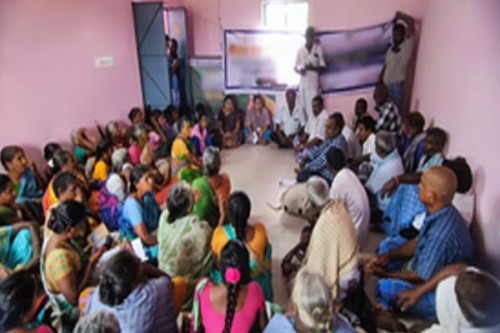Gram Sabha meetings in TN postponed to Nov 23

Chennai, Nov 9 (IANS) The Gram Sabha meetings in Tamil Nadu, originally scheduled for November 1, have been postponed to November 23.
The state government has issued a circular directing all District Collectors and the Director of Rural Development and Panchayat Raj to conduct the meetings statewide from 11:00 a.m. onwards.
The government circular also instructed District Collectors and Panchayat Raj Department officials to inform villagers about the meeting's new date and time.
The meetings were initially postponed due to administrative challenges.
Tamil Nadu traditionally holds Gram Sabha meetings six times annually -- Republic Day (January 26), World Water Day (March 22), Labour Day (May 1), Independence Day (August 15), Gandhi Jayanti (October 2), and Local Governance Day (November 1).
After coming to power in May 2021, Tamil Nadu Chief Minister M. K. Stalin introduced Gram Sabha meetings on World Water Day (March 22) and Local Self-Governance Day (November 1). He also announced the establishment of village secretariats to assist in implementing government schemes in rural areas.
However, the Gram Sabha meetings for January 26 were cancelled during the COVID-19 pandemic, a decision that received criticism from the public and social activists.
Krishnasamy, a social activist from Erode, commented, "Holding six Gram Sabha meetings is a positive step, but the state government needs to ensure that villagers, panchayat members, and officials understand the role of Gram Sabhas."
He added, "Increasing the frequency of meetings is good, but these sessions need to function properly and transparently."
The government must ensure that resolutions passed during these meetings are taken seriously and implemented without delay.
Christopher David, Senior Coordinator at the Institute of Development Studies in Coimbatore, expressed concerns about quorum issues, saying, "It has become common for local bodies to claim that a Sabha couldn't be held due to lack of quorum. The Panchayats must ensure that at least one-third of the total members are present."
The 73rd Amendment empowered state governments to take necessary steps to formalise Gram Panchayats and facilitate their operation as units of self-governance.
Important decisions affecting local communities are often made in Gram Sabhas, with regular meetings supervised by activists to ensure transparency and accountability.

|

|

